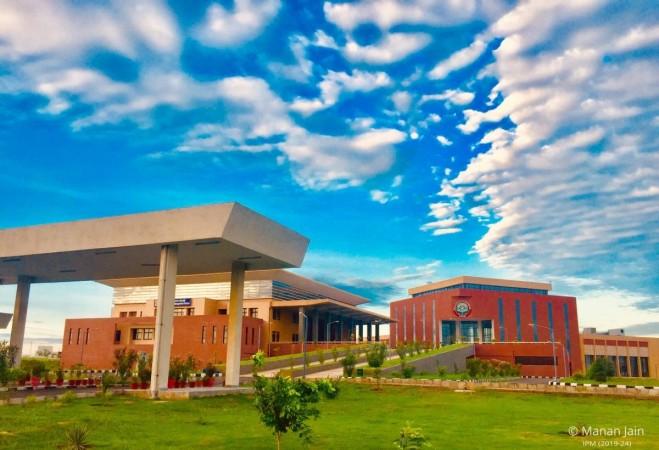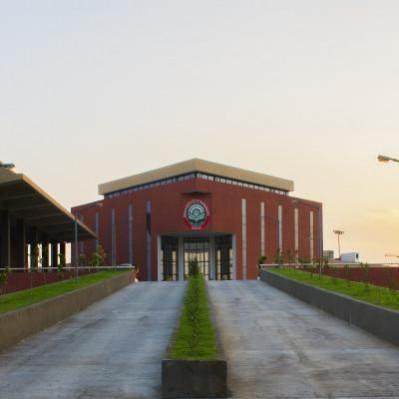
In a significant development that exposes what appears to be a prolonged campaign of bureaucratic overreach, the Punjab and Haryana High Court on Tuesday delivered a sharp and unambiguous verdict dismissing the challenge to Professor Dheeraj Sharma's appointment as Director of the Indian Institute of Management (IIM), Rohtak.
The High Court ruling not only invalidates the show-cause notice issued to Prof Sharma by the Ministry of Education in 2022, but it also calls into question the very motivations behind the move—describing the petition against him as a "proxy writ" filed by disgruntled former employees of IIM Rohtak. In a powerful judicial rebuke, the court observed that the petition was "roving and fishing in nature" and had no legal or factual merit.
A case built on personal grievance, not public interest
The court's findings pierced the veil surrounding the litigation, revealing that the petitioners—who had no demonstrable locus standi—were fronts for two terminated employees of IIM Rohtak. According to the judgment, the entire petition was orchestrated by the spouses of these individuals, who had previously been subjected to disciplinary action by Prof Sharma during his tenure. The court minced no words in calling out this subversion of public interest litigation for settling personal scores.
This judicial intervention provides long-overdue clarity on a case that has been marked by institutional confusion, bureaucratic backpedaling, and what many see as a systemic attack on IIM autonomy.
The U-turn that sparked a storm
The case's most curious element remains the Ministry of Education's baffling reversal. In 2021, the ministry had itself filed an affidavit supporting Prof. Sharma's appointment—only to dramatically reverse course in April 2022 by issuing a show-cause notice that hinted at both civil and criminal action. The allegation? That Prof. Sharma had not submitted a specific degree certificate during his appointment process in 2016—an accusation the court has now found to be baseless.
Insiders in the academic governance circuit have questioned the timing and intent behind the ministry's abrupt shift. Was it merely a procedural concern? Or did it stem from Prof. Sharma's refusal to yield to pressure from the ministry during his reappointment discussions?
Sources confirm that the ministry's representative on the IIM Rohtak Board had vociferously opposed Sharma's reappointment in 2022. The Board, however, voted in favour of continuing Prof. Sharma's term—signaling its support for institutional autonomy, a stance that seemingly did not sit well with the central ministry.
Court upholds due process, affirms legitimacy of appointment
In a detailed judgment, the High Court not only validated Prof. Sharma's appointment but also praised the professionalism of the search-cum-selection committee that appointed him. The court ruled that the committee had acted within its powers in considering nominations and applications based on administrative experience, professional contributions, and academic qualifications.
This comprehensive judicial endorsement raises critical questions about the repeated inquiries initiated by the ministry—including a still-ongoing special audit by the Comptroller and Auditor General (CAG) and a Visitorial Inquiry.
Why, observers ask, is a director whose appointment was vetted by the highest constitutional authorities—including the Appointments Committee of the Cabinet led by the Prime Minister—being subjected to such relentless scrutiny?

Autonomy under siege?
This case arrives at a fraught moment for India's premier management institutions. The Ministry of Education amended the IIM Act in 2023, tightening its grip over the appointment of directors and chairpersons. The judgment sharply underscores the dangers of bureaucratic intrusion, especially when done without legal jurisdiction—as was the case prior to the amendment.
While the High Court has now clarified that the ministry lacked jurisdiction during the time it issued the show-cause notice, the specter of expanded governmental control looms large. If such actions could be attempted without statutory backing, what happens now that the law grants the ministry even greater powers?
What next?
The court's verdict may also impact the fate of the ongoing Visitorial Inquiry—one that now appears legally redundant in light of the High Court's conclusions. Legal experts note that the judgment sets a precedent that might not only exonerate Prof. Sharma fully but also reignite the debate over the balance between government oversight and institutional independence in India's higher education landscape.
Related











